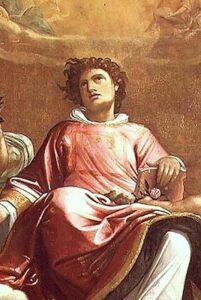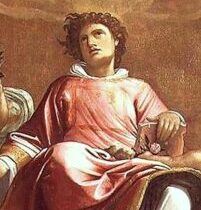The Way – Expanding Understandings
 Following Pentecost, large numbers of people joined the community of believers, who spoke of themselves as Followers of the Way. Jesus had told his followers, “I am the way and the truth and the life.” (Jn 14:1-12) But when it came right down to the day-to-day project of living out the teachings of the master, it was challenging.
Following Pentecost, large numbers of people joined the community of believers, who spoke of themselves as Followers of the Way. Jesus had told his followers, “I am the way and the truth and the life.” (Jn 14:1-12) But when it came right down to the day-to-day project of living out the teachings of the master, it was challenging.
When the community began to grow beyond the Jewish faith tradition and include non-Jews from around the known world, it got even more challenging. Who gets the most of the shared resources? If I am responsible for distributing goods, do I make sure my family and friends have enough even if that means some others didn’t get as much as they wanted? Do I favor the folks who have come from another country? Should they get the same share as I do? They didn’t bring as much wealth to the community. Why should they get as much as the folks who were here first?
We hear some of these same questions and have some of the same arguments today. Why should immigrants get extra help? If a child came to the country illegally, why should they get free education and health care? Why should we care if they are sent to do unsafe work by unscrupulous “hosts”? If people don’t have jobs, why should we give them health care or food?
The apostles had to address these issues of justice and fairness in their community too. They were being distracted from the preaching and teaching of the Good News by the need to mediate these disputes. So after talking and praying about it, they decided to select some members of the community to handle the day-to-day administration the communal life and distribution of resources. They selected a group of people to take this role, including Stephen, the first martyr. (Acts 6:1-7)
Although the roles they played are somewhat different from the roles of deacons today, we often speak of these men as the first deacons. They took as their responsibility the care of the community in its daily life. The apostles were the preachers and teachers. The deacons made sure everyone got what they needed to live a good life together. Women also served as deacons in the early community, but they are not named in the reading describing the selection of the first deacons.
Deacons today preach and teach, both in words and deeds. They assist with the celebration of Eucharist, welcoming those gathered and leading the Penitential Rite. They also bring the needs of the broader community to the attention of the Church community. As they prepare the gifts for the sacrifice and raise the cup of the precious blood at the conclusion of the Eucharistic Prayer, they bring the needs and hopes and joys of the world to the Father in the sacrifice. They dismiss the community gathered in prayer to go into the world and serve the needs of all those they meet, including the poorest of the poor. They call forth leaders from the community to organize helpers and address those needs.
Just as the early church leaders adjusted their practices to meet the growing and changing needs of the community, we today listen to the Holy Spirit speaking to us through the everyday, ordinary folks we meet. The Spirit calls the Church anew in every age to meet new challenges as we continue to share the good news Jesus brought to all – that God is with us and loves us dearly.
May we remember this as we move through the coming weeks and months. Those we meet along the way speak to us of the hopes and dreams of God for all of us and for the marvelous creation we share. I pray we will be open to hear the Spirit calling us to service.
Readings for the Fifth Sunday of Easter – Cycle A










